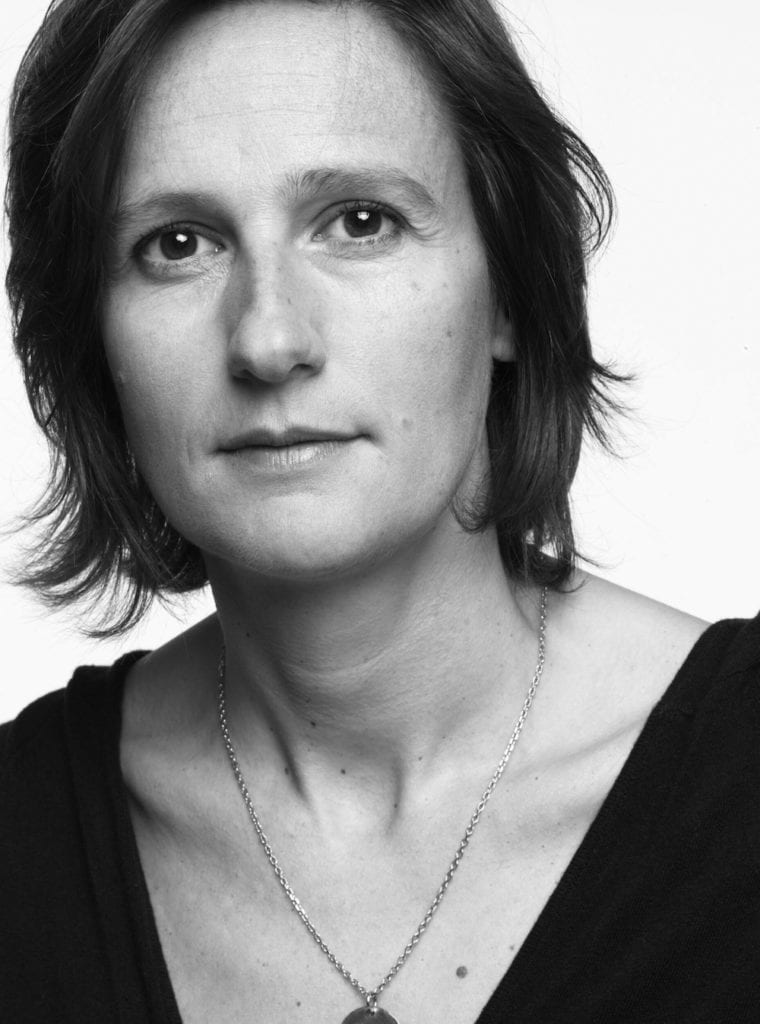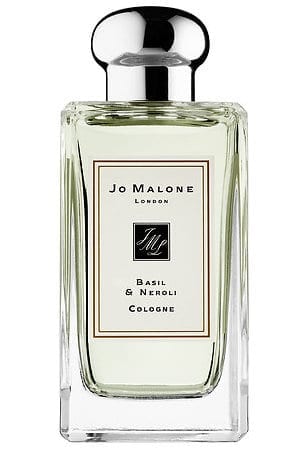Anne Flipo: Her Nose Knows
Thanks to her powerful olfactory prowess, Anne Flipo of International Flavor and Fragrances is one of the most sought-after perfumers in the industry.

Fragrances for personal use date to Ancient Egypt. Today, the fragrance world is immense, spanning from the old and new luxury classics such as Chanel No. 5 or Angel by Thierry Mugler to more affordable scents from retailers including Victoria’s Secret or Bath and Body Works.
Iconic fragrance houses such as Guerlain, along with beauty and skincare brands including Estée Lauder, are major players in the industry. None of these companies, however, can get a fragrance to market without the help of a skilled perfumer, like Anne Flipo.
“We are the person who actually creates the fragrance,” Anne Flipo says. “Our job is to make the best possible fragrance from its origins of a strong idea all the way into a bottle.”
In Flipo’s nearly three decades as a “nez,” or nose, Flipo, 55, and IFF vice president, has created well over 100 scents. She either works alone or as part of a group, depending on the complexity of a project. Flipo works with companies of all sizes including boutique brands such as Jo Malone London or beauty giants such as Lancôme.
How a Perfume is Born
The creation of a fragrance can take as little as nine months or extend to three to four years. In oversimplified terms, the process starts when a company has an idea for a scent. In the case of a fashion brand, the concept can come from a designer. Some designers are hands-off in the process but others, like Tom Ford, are deeply involved. He’s known to road-test his scents, wearing and evaluating samples throughout the scent’s development.
The idea for a scent, however, can also come from a marketing team for a fashion, lifestyle, fragrance, or beauty company – or really from just about anyone. The Diana Vreeland perfumes were launched in 2014 as a collection of five fragrances named for some of Vreeland’s best quotes by chairman Alexander Vreeland, a grandson of the legendary fashion editor and museum curator.
Some companies such as Hermès have in-house perfumers. In most cases, companies are obliged to call upon professionals like Flipo because the brand has to work with scent manufacturers like IFF, Flipo’s employer, because these firms supply the raw materials and technology needed to create perfume. Raw materials include essential oils or extracts from plants, flowers, and gums; tinctures from animals such as deer musk; turpentines including tea tree oil; and synthetic ingredients like aldehyde.

WHY DO WE NEED PERFUME?
“There are so many reasons!” says Flipo. “We do it to treat ourselves, to feel fresh, to seduce. There’s an emotional aspect to perfume as well. But really, it’s unbelievably empowering.”
In addition to their technical role, perfumers practice diplomacy, just as in any client-supplier relationship. Flipo has to balance the client’s concept of a scent with the constraints of IFF’s technology to produce a wearable, lasting fragrance. Moreover, Flipo has to translate emotions because one person’s notion of what a rose smells like, often derived from memory, can differ from another person’s vision, especially since raw materials to produce that rose fragrance often barely smell like the beloved flower.
“So we create our own interpretation of rose!” Flipo declares emphatically.
The Art of Perfumery
Flipo compares her profession to that of a musician or artist who blends notes or colors to create a piece of work that will spark emotion. The key difference a perfumer has with other professions, professional sportswomen and men excluded, is that they work with a part of their body, the nose. And the nose has to introduce a product that will contribute to a brand’s bottom line.
“We have to produce a perfume that’s unique, that smells good, that’s identifiable, that has a scent that is both diffusive and lasting, that will be a success and provoke re-purchasing,” Flipo continues, underlining the stakes in an industry valued at $48 billion in 2016.
Anne Flipo’s Fragrant Memories
After high school and earning her French Baccalauréat diploma, Flipo entered the industry by enrolling in the prestigious ISIPCA scent school, originally founded by Jean-Jacques Guerlain, a perfumer and member of the legendary Guerlain fragrance family. She says she was aware of fragrances throughout her upbringing, from the plants in her family’s gardens to what was being made in the kitchens of her grandmothers, both outstanding cooks.
One of her impactful fragrance memories dates to when she was 13 and visiting a friend for lunch. Upon leaving, she recalls being enveloped by the scent of orange blossom from the trees in the courtyard of her friend’s family’s 17th century mansion. Flipo went to ISIPCA thinking she’d work in the food industry, but as soon as she was directly exposed to raw materials, she realized that her gift was her nose and switched to the fragrance industry.
Interestingly, Flipo, in hindsight, attributes part of her passion for perfume to something she learned well after being an established perfumer. She remembers during her childhood that she and siblings would describe how things smelled to her mother.
In 2012, ten years after her mother’s death, Flipo learned that her mother had an accident in 1949 that likely caused her to lose her sense of smell. Her mother wore French classics including Guerlain’s Shalimar, Chanel No. 5, Guerlain’s Eau Impérial, and Nina Ricci’s L’Air du Temps, all fragrances that were made before 1949.
“She always told us, laughing, that she couldn’t smell,” Flipo remembers. “I’m sure this impacts me everyday as a perfumer.”
Though studying fragrance at school and mastering raw materials is important for becoming a perfumer, Flipo explains that working with mentors is critical for a trade that takes roughly 10 years to master.
“I had the opportunity to work with perfumers who gave me the keys to this trade. They shared their passion, their methodology, their tricks and I’m still learning something new every day,” Flipo says, adding that now she proudly mentors newcomers.
The fragrance industry continues to grow every year. But why on earth do we need perfume?
“There are so many reasons!” says Flipo. “We do it because to treat ourselves, to feel fresh, to seduce. There’s an emotional aspect to perfume as well. But really, it’s unbelievably empowering.”
By Katie Weisman
Editors Note: To learn more about the International Flavors and Fragrances company, visit their website.

